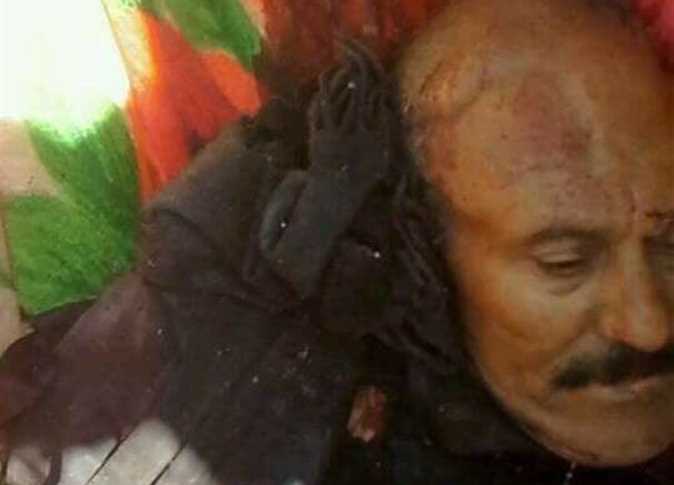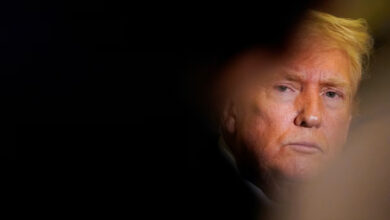
The radio station of Yemen’s Houthi-run interior ministry said on Monday the militia’s former war ally turned adversary, ex-president Ali Abdullah Saleh, had been killed as fighting racked the capital Sanaa though there was no independent confirmation.
Unverified footage circulated by Yemeni social media users appeared to a show corpse resembling Saleh. Armed militiamen unfurled a blanket containing the corpse and shouted, “praised God!” and “hey Ali Affash!”, another last name for Saleh.
The radio station said the official Houthi TV station would soon broadcast footage of Saleh’s dead body.
Saleh’s party denied to Reuters that their leader had been killed and said he was still leading forces in heavy fighting in Sanaa that has killed at least 125 people and wounded 238 in six days, according to the International Committee of the Red Cross.
His whereabouts were unknown and he has made no public appearances since the reports of his death surfaced.
Earlier on Monday, Houthi forces blew up Saleh’s house in Sanaa and came under aerial attack by Saudi-led coalition warplanes for a second day, residents said.
The Saudi-led air campaign, backed by US and other Western arms and intelligence, has killed hundreds of civilians but has failed to secure the coalition any major gains in the nearly three-year-old campaign to restore Yemen’s internationally recognized president, Abd-Rabbu Mansour Hadi, to power.
Saleh’s loyalists have lost ground on the sixth day of heavy urban warfare with the Iran-allied Houthi militia during which the casualty toll has rapidly mounted in Sanaa.
“We are supporting the main hospitals in Sanaa who urgently need war-wounded kits,” ICRC spokeswoman Iolanda Jaquemet said in Geneva. “We are also looking at donating dead body bags to hospitals which are actually asking for them and hope to donate fuel to the main hospitals because they depend on generators.”
The ICRC have “relocated” 13 international staff to Djibouti from Sanaa on Monday, she said.
Sanaa residents reported intense fighting overnight and into the morning with families cowering in their homes as explosions rocked the city. Coalition air strikes hammered Houthi positions in an apparent bid to shore up Saleh’s forces, witnesses said.
Proxy conflict between Iran and Saudi Arabia
The re-alignment of Saleh’s forces with the Saudis would mark a significant turn in a war that is part of a wider struggle between regional powers Saudi Arabia and Iran.
The bloodshed has compounded the woes of one of the Arab world’s poorest countries and left at least 10,000 dead as hunger and disease have spread.
At the United Nations, UN Secretary-General Antonio Guterres urged the warring parties to stop all ground and air assaults. He also called for the resumption of all commercial imports into Yemen, saying millions of children, women and men were at risk of mass hunger, disease and death.
However, in a speech late on Sunday, Saleh formally annulled his alliance with the Houthis and pledged to step up his fight.
Saleh, who dominated Yemen’s heavily armed tribal society for 33 years before quitting in the aftermath of the Arab Spring uprisings in 2011, and the Shi‘ite Muslim Houthis had made common cause against Hadi loyalists.
But they vied for supremacy over the territory they ran together, including Sanaa, which the Houthis seized in September 2014, and their feud burst into open combat on Wednesday.
Houthi spokesman Mohammed Abdul Salam claimed significant gains in the battle for Sanaa on Monday.
“With the aid and approval of God, the security forces backed up by wide popular support were able last night to cleanse the areas in which the militias of treason and betrayal were deployed,” he said in a statement.




